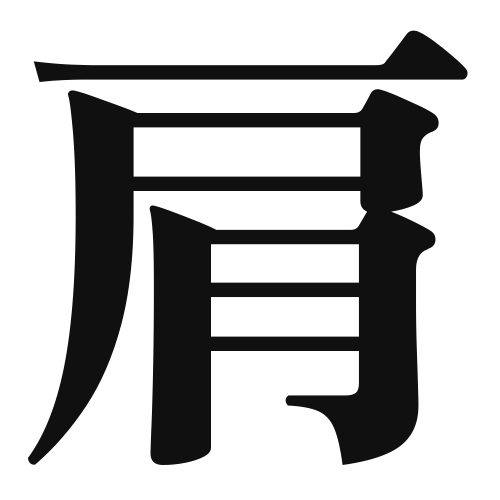1. Overview of Meaning
The kanji “肩” (kata) means “shoulder” in English. It refers to the part of the body that connects the arm to the torso, and it can also symbolize support or burden in a metaphorical sense.
2. Formation and Radical
The kanji “肩” is a phonetic compound (形声文字) that combines the radical “肉” (meaning “meat” or “flesh”) on the left, indicating that it relates to the body, and the phonetic component “干” (kan) on the right, which contributes to its pronunciation.
The radical “肉” is commonly associated with body parts in various kanji characters.
3. Examples of Usage
Common words and phrases that include “肩” are:
- 肩こり (katakori) – shoulder stiffness
- 肩車 (kataguruma) – piggyback ride
Example sentences in daily conversation:
- 「肩が痛いです。」(Kata ga itai desu.) – “My shoulder hurts.”
- 「彼は私を肩車してくれました。」(Kare wa watashi o kataguruma shite kuremashita.) – “He gave me a piggyback ride.”
4. Synonyms and Antonyms
Similar kanji with related meanings include:
- 腕 (ude) – “arm,” which refers to the limb itself, while “肩” specifically refers to the shoulder area.
Antonyms include:
- 足 (ashi) – “foot” or “leg,” which is a different part of the body.
5. Cultural and Historical Background
The kanji “肩” has significance in Japanese culture, often associated with the idea of carrying burdens or responsibilities. It appears in various proverbs and idiomatic expressions.
For example, the saying “肩の荷が下りる” (kata no ni ga oriru) means “to relieve oneself of a burden,” illustrating the metaphorical use of shoulders in relation to responsibilities.
